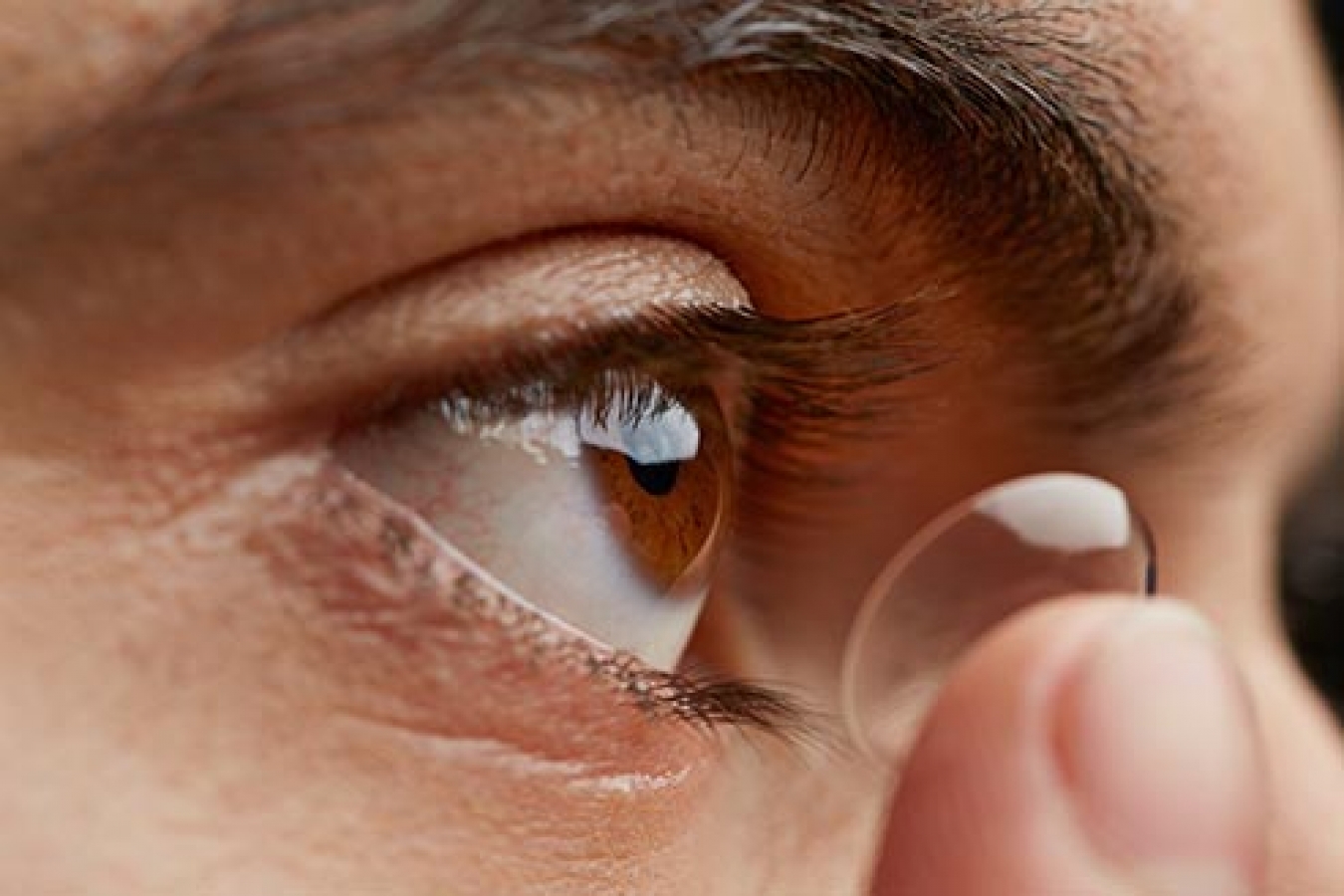


 6:49:23
6:49:23  2018-08-23
2018-08-23  2018
2018

Wearing contact lenses is a risk factor for dry eye problems. Dry eyes, in turn, can make contacts much less comfortable. It’s a situation that causes a lot of frustration for many contact lens wearers. In fact, this combination of dryness and discomfort is the number one reason people give up contact lens use.
There’s another concern as well: Contact lens wearers can wind up with a serious eye infection if they aren’t meticulous about proper lens care. The healthy tear film is a vital immune barrier for the eye. Insufficient tear production in people with dry eyes can increase the risk of infection, because tears help protect the eyes from germs and promote overall eye health.
But don’t toss out your contacts yet. If you have dry eye syndrome, the steps below can make wearing contacts safer and more comfortable.
The best way to ward off infection is by following the lens care advice from your eye care professional. These tips can reduce your risk:
Wash your hands with soap and water before handling your contacts. Then rinse well and dry with a lint-free towel.
Clean your contacts as directed by your eye care professional. If recommended, first rub the contacts with your fingers and rinse them with contact lens solution. Then soak them in solution overnight.
Discard the solution after each use. Don’t transfer solution into another container, which can affect its sterility.
Avoid using water—tap, bottled, or distilled—on your contacts. Remove your contacts before going swimming or getting into a hot tub.
Store your contacts in a lens storage case. After each use, rinse the case with solution and air dry. Replace it at least every three months.
Wear your contacts according to the prescribed schedule. Replace them as often as recommended by your eye care professional.
Dry eye syndrome can cause symptoms such as eye burning, pain, or redness; a gritty feeling in the eye; blurred vision; and episodes of excessive watering. Irritation from wearing contacts can cause similar problems.
Talk with your eye care professional about ways to reduce any discomfort associated with wearing contacts. If problems persist, your eye care professional may suggest reducing the number of hours you wear your contacts or switching to another type of lens. In severe cases, you might be advised not to wear contacts at all.
New or worsening symptoms, especially ones that come on quickly, may signal an eye infection. Such symptoms may include:
If you suddenly develop such symptoms, call your eye care professional right away. Left untreated, an infection may cause vision loss or even blindness.
Wearing contacts is a bit more challenging when you have dry eyes. But that doesn’t automatically mean you’re limited to wearing eyeglasses. For many people with dry eyes, a few basic precautions can greatly improve their comfort and safety.
Reality Of Islam |
|

Researchers

A well-know

Scientists

As AI-power
 9:3:43
9:3:43
 2018-11-05
2018-11-05
10 benefits of Marriage in Islam
 7:5:22
7:5:22
 2019-04-08
2019-04-08
benefits of reciting surat yunus, hud &
 9:45:7
9:45:7
 2018-12-24
2018-12-24
advantages & disadvantages of divorce
 11:35:12
11:35:12
 2018-06-10
2018-06-10
 6:0:51
6:0:51
 2018-10-16
2018-10-16
 9:42:16
9:42:16
 2022-10-19
2022-10-19
 7:45:39
7:45:39
 2018-06-21
2018-06-21
 4:26:43
4:26:43
 2022-02-21
2022-02-21
 11:2:27
11:2:27
 2022-10-06
2022-10-06
 10:35:40
10:35:40
 2022-05-26
2022-05-26
 8:39:51
8:39:51
 2022-09-23
2022-09-23
 7:0:55
7:0:55
 2022-05-17
2022-05-17
 5:41:46
5:41:46
 2023-03-18
2023-03-18
| LATEST |